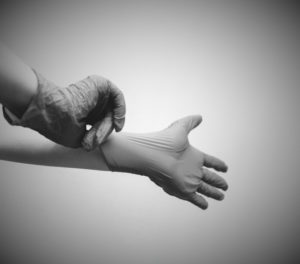
I briefly forgot about the butterflies in my stomach when the work clinic doc latched on to my genitals. He seemed to be checking for more than a hernia, but, sensing I wasn’t happy to be there, he quickly finished the cursory exam. A few reams of government paperwork later, including a set of fingerprints, and I was officially an employee at the TVA’s Sequoyah Nuclear Plant construction site near Soddy-Daisy, Tennessee. My fiancé’s father, the site construction superintendent, had pulled some strings to get me in the fence, and that thought set the butterflies flapping again.
It was a summer in the early 70s. I was a college kid working my way through the University of Tennessee at Chattanooga. I had been the city’s worst shoe salesman, a hospital orderly and an on-the-job-trained respiratory technician before moving onto the relatively more lucrative field of union construction labor. Getting into the local labor union was a catch-22 situation: To land a union job I had to belong to the union, but to join the union I had to be hired for a union job. My only hope was to hang out at the union hall until a job request arrived that nobody else wanted.
I can’t recall the exact number of hours/days I squirmed in a metal chair in the stuffy, concrete-walled waiting room at the rear of the bleakly utilitarian union hall on Central Avenue in Chattanooga. Yet, I finally got a Laborers’ Local 846 union card and a job with a contractor replacing a metal culvert with a fiberglass one at the Volunteer Army Ammunition Plant (now the site of a huge Volkswagen manufacturing complex). Whatever was in the stream running through the galvanized pipe had eaten completely through it. This didn’t seem to bother the herd of beaker-stomached deer drinking the water, but it gave me a hint as to why no one else jumped at the job.
I toiled with a shovel and wrestled a bucking dirt tamper. Sunburnt, hand-blistered and dog-tired, I was happy to be earning union wages. When that job ran out, I got on with an electrical contractor helping to lay conduit. After that, I finally landed at Sequoyah.
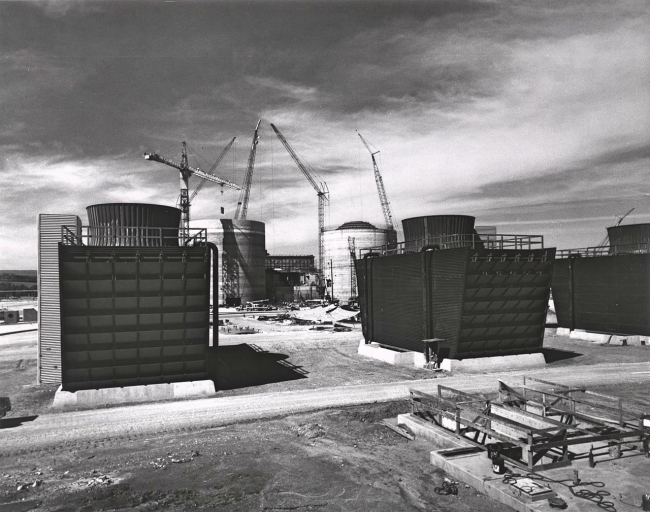
I was the youngster on a crew of grizzled form strippers, including two Vietnam war veterans. Our main job was to dismantle the wooden forms surrounding floors and walls after the concrete had set. We’d climb up the scaffolding beneath the floors, drop the screw-jacks supporting the beams, pry the joists loose and muscle the thick plywood off the concrete. My main tool was a heavy iron wrecking bar, about six feet long, I dubbed Big Bertha. When we weren’t stripping forms, we were stacking and transporting building materials, or worse—tediously scraping dried concrete off of metal frames.
Some of the rules that came along with a union work site could be stifling. If we needed an extension cord to a power tool, an electrician had to run it. Pick up a hammer, and if you wanted to use it for anything other than a back scratcher, you better be a carpenter. The concrete finishers were dominated by African American men who vanpooled to the site from out of state. I wasn’t privy to the racial politics of this arrangement at the time, something I can’t unpack here, but Richard Rothstein’s The Color of Law does. Above all was an unwritten dictate to make the work last— keep it steady but don’t get too ambitious or someone might accidentally drop a weighty tool on your head.
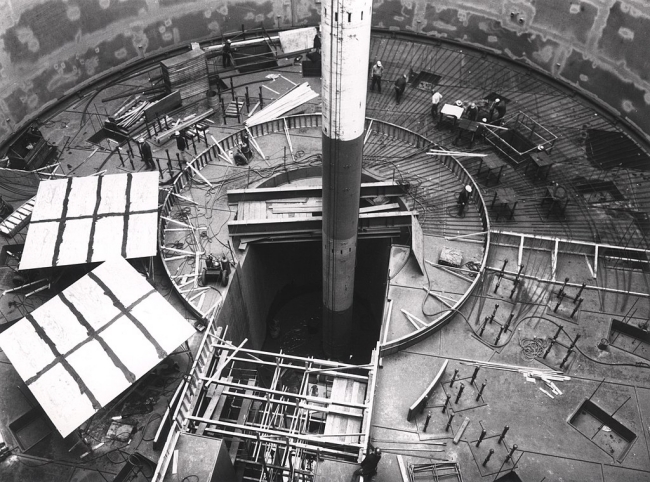
We had two Reds: Big Red, a strapping Soddy man with the requisite shock of copper hair and freckled face and Little Red, a fiery bantam rooster. Big Red was gregariously mischievous, but reputed to morph into a vicious barroom brawler when he was feeling his alcohol. Rumor was Little Red had deposited his brood of hungry kids outside the main office to convince the boss to hire him. One of the vets, a former army ranger, triple-dipped a tobacco smorgasbord: a generic pinch of snuff beneath his lip, Copenhagen in one cheek, and a chaw in the other. When he was up on the scaffolds it was like working under a flock of pigeons. Slim raised coon hounds and fighting cocks. Pine Knot, a carpenter, sported the gnarly asymmetrical visage of the figure in Munch’s The Scream. Another carpenter, Preacher, lived in a camper, which, judging from his chronic griminess, lacked a water hook up. Preacher’s sermons featured inspiring gems, such as a diatribe on the mark of Cain among the black race, delivered to his obsequious carpenter acolyte—the rest of us ignored him.
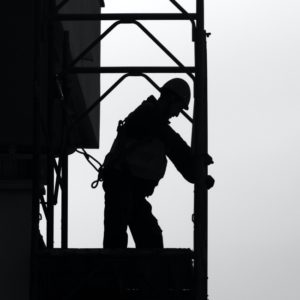
It didn’t take too long for word to get out and I became The Son-in-Law. The expected harassment never happened, perhaps because I kept my head down, did my work and listened to what they had to say. A crane operator forced me to jump off a stack of plywood when he swung a second load of lumber into me. Maybe it was accident, maybe not. Otherwise, the crew respected that I was a college kid willing to get his hands dirty and earn his way through school. Once they determined I wasn’t a snitch, I even got invited out a few times. I survived an afternoon of shooting pool and guzzling Buds in a Soddy-Daisy dive bar. I spent a Saturday with an old timer riding shotgun in his turd hearse and watching while he pumped out a trailer’s septic tank.
When the fall semester started, I bid good-bye to my crew, and switched to working evening shifts doing odd jobs as a solo form stripper and carpenter helper. I took morning classes, studied in the afternoon, drove my Ford Pinto firetrap 24 miles to Sequoyah, worked the 3 p.m. to 11 p.m. shift, drove back and hit the sack around midnight. One night, as I was hanging up in a harness using an air chisel to chip wood out of a keyway, I noticed my new supervisor eyeballing me. Later when he saw me back on the ground, he grinned and muttered, “nice job Satchel Ass.” Thanks to my baggy work pants flapping in the breeze, I was no longer The Son-In-Law.
**Featured image: “The arrival of a nuclear pressure vessel at Sequoia Nuclear Power Plant” 1973 – Energy.gov – Wikimedia
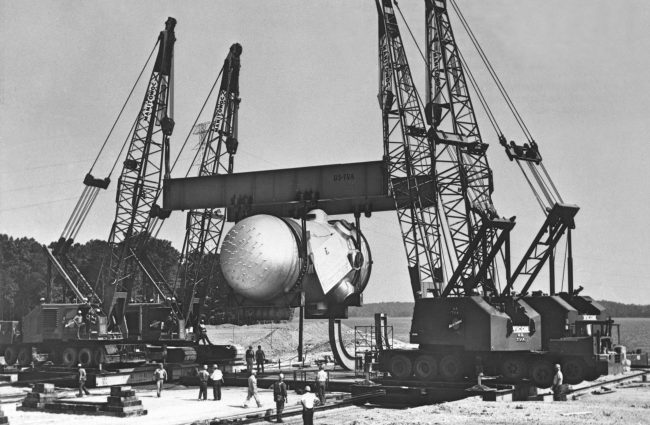
Wow, this was vivid! You did an excellent job putting us in your shoes. I hope this is just part one.
Trent thank you. Since about 90% of my time at Sequoyah was toil and/or tedium, I don’t have much more to tell about this subject. I am working on a few stories from my other Appalachian misadventures.
Jimmy: I enjoyed this one so much. The undercurrent of race and class roiling in the seventies were just part of our daily lives. Your account reminds me of similar circumstance occurring the summer before our senior year. Ricky Brown’s father, Dr. Reid Brown, got us jobs as grave diggers for the Turner Funeral Home. This was before the ubiquity of backhoes and front loaders. It was the hardest job I ever had, made worse by the abuse of the “professional” diggers who despised Ricky and me for reasons we could hardly fathom at the time. I concluded decades later that privilege was not having to dig graves 365 days a year!
Thank you Eddie.You’re right about the undercurrent of race and class in those years (and still now), as your anecdote above illustrates. I’m not proud of my boneheaded obliviousness to so much of it at the time. As I read books like the Color of Law and The Warmth of Other Suns, I’ve started looking back on those years with much different eyes.